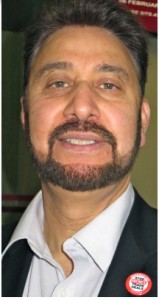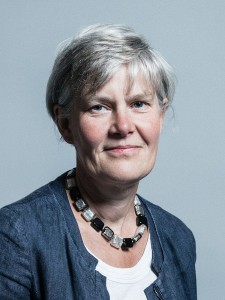On 20th. June I arrived in London on an early morning coach and having time to spare before a meeting went along to Parliament where the Commons International Trade Committee was taking evidence. You can watch it (and me) on https://goo.gl/kQrBab.
There were two hearings on the impact of Brexit on “Trade with the Commonwealth: Developing Countries”; the first with Professor Tony Heron, Department of Politics, University of York , and Brendan Vickers, Head of Research and Policy for International Trade and Economic Development, International Centre for Trade and Sustainable Development and a member of the Commonwealth Secretariat. The Prof. was difficult to follow, Vickers had experience in the Commonwealth, presented some reports his body had produced and spoke energetically, drawing distinctions between different Commonwealth countries as trading partners.
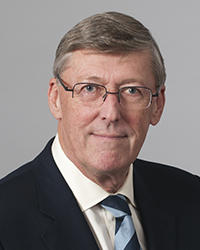 The second sitting was perhaps more interesting in some ways as the line up were unreservedly “Free Traders” with a history of negotiation deals including NAFTA.
The second sitting was perhaps more interesting in some ways as the line up were unreservedly “Free Traders” with a history of negotiation deals including NAFTA.
Not billed, but coming along to support the others was John Weekes, (Pic. Bennett Jones) is a member of the Institute of Economic Affairs and an architect of NAFTA which in the past he’s advocated the UK joining, along with TPP.
Second up was Alan Oxley, Australian former ambassador to GATT, Chair of the Free-Trade Asia-Pacific Economic Cooperation forum, and International Trade and Competition Unit Advisory Council. His activities in relation to deforestation and the Palm-Oil industries were criticised by the Global South environmental group REDD-Monitor in 2010 citing an open letter sent by eminent scientists worldwide, including Sir Ghillean Prance FRS. Emeritus Director of Kew Gardens.
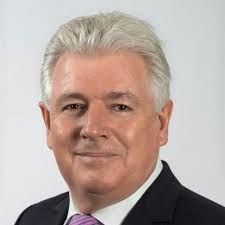
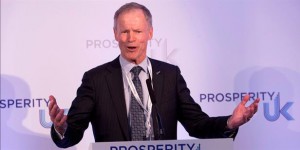 Thirds was Sir Lockwood Smith, of the International Trade and Competition Unit Advisory Council, a former New Zealand Parliament Speaker, High Commissioner and Trade Minister has a great smile, seemingly all the time. (Pic. from Legatum Institute)
Thirds was Sir Lockwood Smith, of the International Trade and Competition Unit Advisory Council, a former New Zealand Parliament Speaker, High Commissioner and Trade Minister has a great smile, seemingly all the time. (Pic. from Legatum Institute)
He’s a kindred spirit, advocate of Britain being free to join the Trans Pacific Partnership and promoted by Brexiteers: http://www.leavemeansleave.eu/media/sir-lockwood-smith-winner-yesterday-uk/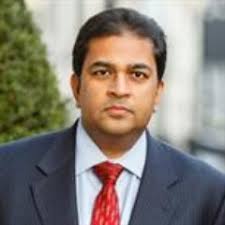
Lastly came Shanker Singham (Pic. from Twitter), a colleague of Alan Oxley and (at the time of the hearing) Director of the International Trade and Competition Unit and the IEA: “A hard-Brexit guru whose thinking has influenced senior cabinet ministers” who has since lost his job at Dept. of International Trade over a ““potential conflict of interest”. He had been advising on trade policy while working four days a week at the Institute of Economic Affairs think tank but this month took a part-time role advising the PR firm Grayling.” (Times; paywall). The extent of his work and his frequent privileged access as a “Hard Brexit svengali” has been catalogued by Open Democracy and his outlook can be see in https://reaction.life/brexit-golden-opportunity-reshape-way-world-trades/.
With such an interesting line-up their opinions, in as much as I could understand them, weren’t too difficult to guess. Sir Lockwood in particular rounding off his contribution with the confident assertion that the UK should clearly cut its ties with the EU.
The chair, Angus Brendan MacNeil (SNP for the Western Isles) showed that he had some awareness of Trade Justice concerns and the potential empowerment of women through trade, leading to Brendan Vickers and Tony Heron, talking about “Women’s empowerment”, though the magnitude of achievements they could point to seemed comparatively slight and fragile when compared to the vision of the Free Traders. (One might wonder if the few millions thrown into such projects through “Aid” are really mere sops.)
Challenging the Free Traders he asked where the wellspring for a trade agreement should be – perhaps Trade ministers meeting in an airport lounge? This was answered by Singham neatly hopping from the asserted necessity of executive government doing trade to the impossibility of a country negotiating with another parliament. He favoured the US system where parliament (through committees and “cleared advisors”) might play “an advisory role” with access to secret documents and industry and trade advice- not publicly available to every Tom, Dick or Harriet. MacNeil challenged again and Singham said Government should set the agenda with Parliament having an “up or down vote on the agreement”.
John Weekes’ shared Canadian experience where a government that had previously called an election to get a free trade deal through its parliament decided a policy of openness and candour (“without giving away secrets”) – resulting in more informed discussion and the trade minister saying that a well informed opposition was much easier to deal with than an uninformed one.
Oxley’s contribution seemed to reflect an assumption that business should be consulted, not civil society – although the public had to be told the purpose of discussions, ongoing consultation wasn’t espoused.
It was sad to see that some members of the committee were absent, not contributing or slipping out. The Committee has 11 members; not half attended. (This was particularly notable with Labour members, however Chris Leslie took an active part.) What sort of scrutiny and thinking does this reflect?
I wasn’t the only witness to proceedings. John Hillary (now Head of Trade Policy, Labour Party) and Manchester’s former trade doyen Gabriel Siles-Brügge, now moved to Warwick and “providing support and advice” to the Committee. Disagreeing about Brexit, they share misgivings about potential trade injustices.
I was left with several things to think about:
-
If paying peanuts leads to hiring monkeys, what sort of advice can you get if you invite “Free Trade” negotiators from “think tanks”?
-
Will the Committee hear the ideas of Trade Justice advocates or people engaged in shaping regulations to protect workers, industries, environment et al.? They heard Nick Dearden as an advocate of Trade Justice back in November (See https://www.parliament.uk/business/committees/committees-a-z/commons-select/international-trade-committee/news-parliament-2017/trade-bill-evidence-17-19/), but what about actual negotiators?
-
Why weren’t members of the Committee there?
-
Do members of the Committee (or anyone else in Westminster beyond Carolyn Lucas) ever seriously ponder the desirability of (economic) “Growth” or even “Degrowth”?
-
Why weren’t more members of the public there?
-
Wouldn’t it improve our thinking, arguing and campaigning if we listened to and thought about what is actually said by people rather than depending on second hand images through NGO briefings and simplified stereotypes and slogans.
You can readily find such meetings on the Commons website and that day one was spoilt for choice, other hearings involving HS2, the state of Brexit negotiations, Northern Ireland agriculture, Benefit Sanctions, local authority support for Grenfell Tower residents, the proposed ASDA/Sainsbury’s merger and the work of the government’s equality office, to name but a few in the morning.
As long as you leave weapons, placards, tools, whistles and a few other things at home you can get in to walk the corridors of power for free with no more trouble than turning out your pockets and being frisked. They scan bags which you have to keep with you – though I don’t know if they would accept a suitcase. For more information see https://www.parliament.uk/visiting/visiting-and-tours/ukvisitors/committees/
Stephen Pennells
